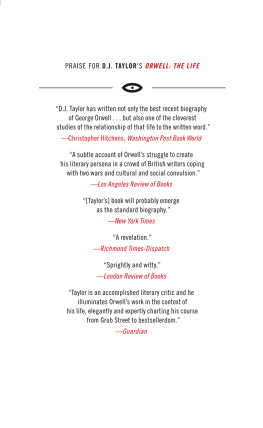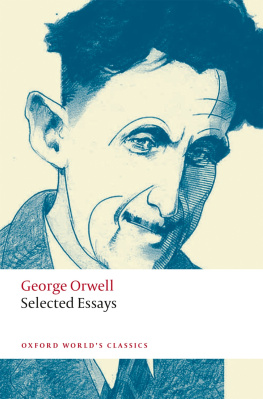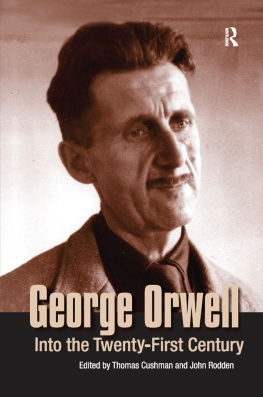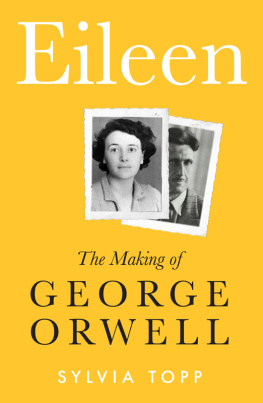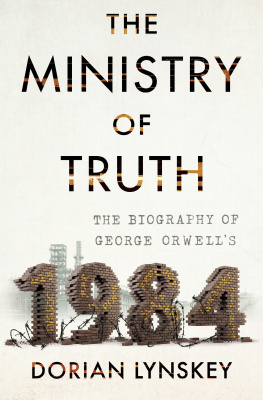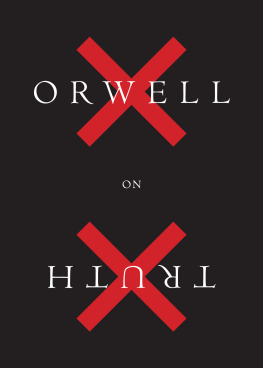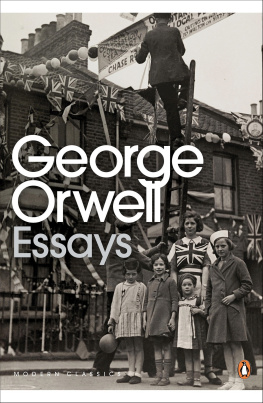Contents
Landmarks
Page List
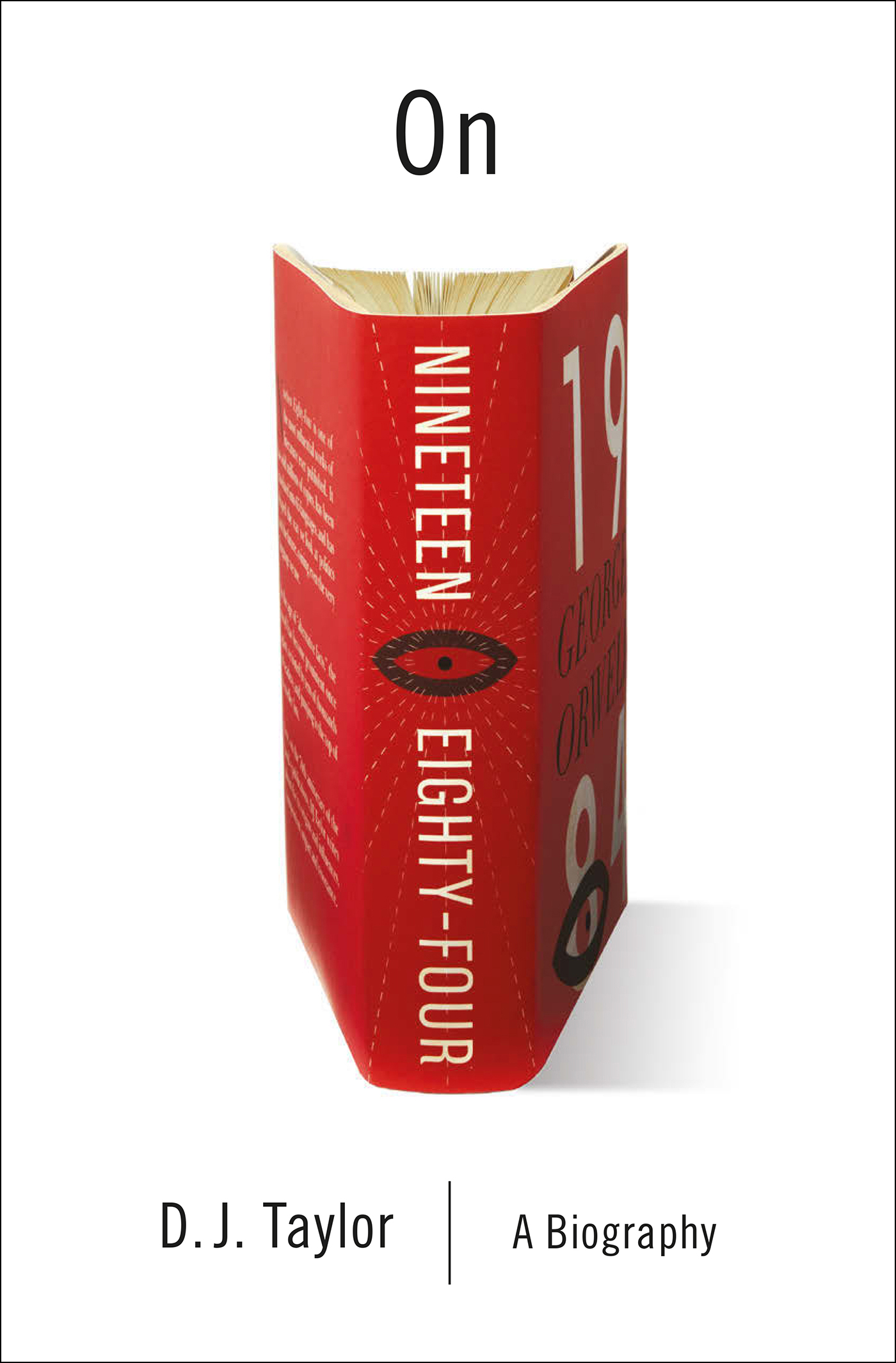
BY THE SAME AUTHOR:
FICTION
Great Eastern Land
Real Life
English Settlement
After Bathing at Baxters: Stories
Trespass
The Comedy Man
Kept: A Victorian Mystery
Ask Alice
At the Chime of a City Clock
Derby Day
Secondhand Daylight
The Windsor Faction
From the Heart (Amazon Kindle Single)
Wrote for Luck: Stories
Rock and Roll is Life
NONFICTION
A Vain Conceit: British Fiction in the 1980s
Other People: Portraits from the Nineties (with Marcus Berkmann)
After the War: The Novel and England Since 1945
Thackeray
Orwell: The Life
On the Corinthian Spirit: The Decline of Amateurism in Sport
Bright Young People: The Rise and Fall of a Generation 19181940
What You Didnt Miss: A Book of Literary Parodies
The Prose Factory: Literary Life in England Since 1918
The New Book of Snobs

Copyright 2019 D.J. Taylor
Cover 2019 Abrams
Photograph on by Vernon Richards
Published in 2019 by Abrams Press, an imprint of ABRAMS. All rights reserved. No portion of this book may be reproduced, stored in a retrieval system, or transmitted in any form or by any means, mechanical, electronic, photocopying, recording, or otherwise, without written permission from the publisher.
Library of Congress Control Number: 2018958830
ISBN: 978-1-4197-3800-5
eISBN: 978-1-68335-684-4
Abrams books are available at special discounts when purchased in quantity for premiums and promotions as well as fundraising or educational use. Special editions can also be created to specification. For details, contact specialsales@abramsbooks.com or the address below.
Abrams Press is a registered trademark of Harry N. Abrams, Inc.

ABRAMS The Art of Books
195 Broadway, New York, NY 10007
abramsbooks.com
For Peter Davison
That the year 1984 may come and go without the realization of the nightmarewith, indeed, an augmentation of personal freedom and a decay of corporate powerwill not necessarily invalidate the horrible identification.
ANTHONY BURGESS, writing in 1978
You must read it, sir. Then you will know why we must drop the atom bomb on the Bolshies!
A New York newsvendor, placing a copy of Nineteen Eighty-Four into the hands of Isaac Deutscher, 1950s
CONTENTS
A note on monetary values
For the majority of his professional career, Orwell was not at all well-paid. At certain points in the 1930s, his income dipped to as low as 250 a year ($1,250). The modern equivalent would be 16,000 to 17,000, or $21,000 to $22,000. In 1949, Orwells advance against royalties for Nineteen Eighty-Four from his UK publisher was 300 ($1,200)10,000 to 11,000 ($13,000 to $14,500) today. For purposes of comparison, this was the annual salary of a middle-ranking London clerical worker.
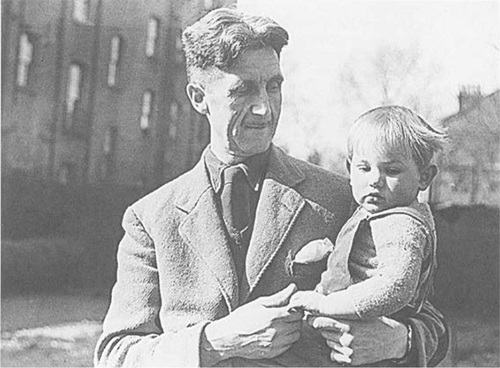
George Orwell with his adopted son, Richard. Islington, London, 1946.
PART I
Before (19031943)
1. THE TERRORS OF POWER
In the early summer of 1949, the first reviews of a new novel by an English writer named George Orwell began to appear in newspapers and magazines on either side of the Atlantic. If the initial batch of notices werent universally ecstaticseveral pundits were alarmed by the books no-holds-barred torture scenes and its eerie, hallucinatory atmospherethen no one was in any doubt that here was a work of the profoundest importance: not just a novel, the first band of readers insisted, but a terrifying vision of what the world might become if some of the political tendencies then animating its leaders were allowed to continue unchecked. The American critics were especially enthusiastic. This novel is the best antidote to the totalitarian disease that any writer has so far produced, Philip Rahv wrote in Partisan Review. Everyone should read it; and I recommend it particularly to those liberals who still cannot get over the political superstition that while absolute power is bad when exercised by the Right, it is in its very nature good, and a boon to humanity once the Left... take hold of it. A brilliant and fascinating novel, Diana Trilling declared in Nation. British critics were no less vociferous. According to Harold Nicolson in the Observer, the author had set out to write a cautionary tale, by which to convince us of the terrible results which will follow if through inattention we allow our humanistic heritage to be submerged in a flood of materialism. Over in the Times Literary Supplement, Julian Symons thought that the picture of society in Nineteen Eighty-Four has an awful plausibility which is not present in other modern projections of our future and praised a writer who is able to speak seriously and with originality of the nature of reality and the terrors of power.
Terror. Fascination. Plausibility. Humanitys heritage in peril... As the summer went on, and copies of the book began to be distributed around continental Europe and in the debatable lands beyond it, these rivulets of approbation built into a tidal wave, the harbinger of an all-round media storm to which even Orwellalways downbeat about his chances of literary successwas not immune. The book seems to have had a good reception, he remarked to his agent, Leonard Moore, late in June, by which time 25,000 copies were available on the British market, i.e. even when unfavourable, I should say they are selling reviews. Of the dozens of responses to Nineteen Eighty-Four filed in the first year of its existenceover sixty in the US aloneonly a handful were unrepentantly hostile. One of them came from the American Communist journal Masses & Mainstream, whose reviewer, Samuel Sillen, complained of cynical rot, threadbare stuff with a tasteless sex angle, and lamented the ovation the novel had received in the capitalist press. Another could be found in Pravda, the official publication of the Soviet Communist Party, which condemned a work of misanthropic fantasy, a filthy book redolent of the gruesome prognostications which are being made in our times by a whole army of venal writers on the orders and instigation of Wall Street.
Pravdas reaction to what it assumed to be a capitalist plot is understandable, for Nineteen Eighty-Fourimmediately banned in the Communist states of Eastern Europe and for decades available only in underground samizdat editionsis, transparently, an expos of the totalitarian mind, the story of a man who rebels against the autocracy that is trampling on his soul. Here in the not-so-distant future, England has metamorphosed into Airstrip One, itself a part of Oceania, an agglomeration of territories ostensibly striving for precedence and military domination over the other great land blocs of Eurasia and Eastasia. It is a world of constant surveillance and devious propaganda, commanded by an organisation known as the Party, bossed by the all-seeing eye of Big Brother, and characterised by the brutal suppression of dissent (thoughtcrime) and the routine falsification of the past. Winston Smith, its tormented late-thirtysomething hero, may only be a minor cog in this dictatorial wheela member of the Outer Party with no privileges worth the namebut his part in the complex mechanisms of state control turns out to be a vital one. Sequestered in his cubicle at the fatally misnamed Ministry of Truth, Winston is charged with doctoring back-numbers of

